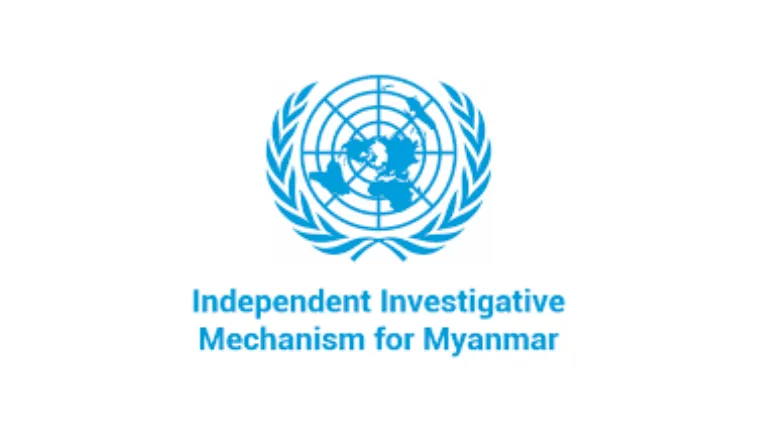October 2023 issue of the Bulletin
19 October 2023

The Mechanism has collected copious evidence indicating that the Myanmar military has been committing bolder and more frequent attacks on civilians. The reports and accounts received show that these attacks include the intentional burning of villages, aerial bombardments and mass executions.
Also outlined in this issue of the Bulletin, the Mechanism has recently produced three analytical reports regarding crimes committed against the Rohingya, which it is sharing with the relevant authorities in the ongoing proceedings at the International Criminal Court, the International Court of Justice and in Argentina.
——————————
MESSAGE FROM THE HEAD OF THE MECHANISM
Almost daily, the Mechanism receives new reports of alleged war crimes and crimes against humanity committed in Myanmar. As detailed in our recent Annual Report and in my statement to the UN Human Rights Council on 11 September 2023, the Mechanism has collected copious evidence indicating that the Myanmar military has been committing bolder and more frequent attacks on civilians. The reports and accounts received show that these attacks include the intentional burning of villages, aerial bombardments and mass executions. Our Annual Report also notes that military authorities have not announced any investigations into these incidents, despite their duty under international law to take every reasonable measure to investigate and punish war crimes committed by those under their command.
The evidence that the Mechanism collects and preserves is not intended to gather dust in storage but to be used to facilitate justice. The Mechanism has recently produced three analytical reports regarding crimes committed against the Rohingya, which it is sharing with the relevant authorities in the ongoing proceedings at the International Criminal Court, the International Court of Justice and in Argentina. These reports focus on the military chain of command in Rakhine State; the failure of the Myanmar authorities to investigate or punish sexual and gender-based crimes; and the organized spread of hate speech by the Myanmar military during the 2017 clearance operations.
The unfortunate reality is that international justice is a slow process, and I know this only increases the suffering of victims of crimes. On 25 August, I participated in a number of events to mark six years since the horrific violence that displaced hundreds of thousands of Rohingya from Myanmar to Bangladesh. Six years on, no one has been held accountable for these crimes. That is six years too long.
Justice requires a sustained effort, and the Mechanism is committed to seeing justice served. With thanks to the courageous individuals and organizations who have provided valuable information to us, we are collecting and analysing evidence in order to identify the individuals responsible for the most serious international crimes committed in Myanmar. The analytical reports and case files we are preparing can be used by courts or tribunals at any time in the future. The process of justice may be slow, but every piece of evidence we collect and analyse takes us closer to seeing perpetrators behind bars. We are motivated in our work by the hope that this cycle of impunity that has emboldened the Myanmar military to commit ever-more brazen crimes will be broken.
Nicholas Koumjian
Announcements
21 May 2025
Open letter: Malaysia must lead ASEAN with principle, not hypocrisy, to address the Myanmar crisis

Progressive Voice is a participatory rights-based policy research and advocacy organization rooted in civil society, that maintains strong networks and relationships with grassroots organizations and community-based organizations throughout Myanmar. It acts as a bridge to the international community and international policymakers by amplifying voices from the ground, and advocating for a rights-based policy narrative.